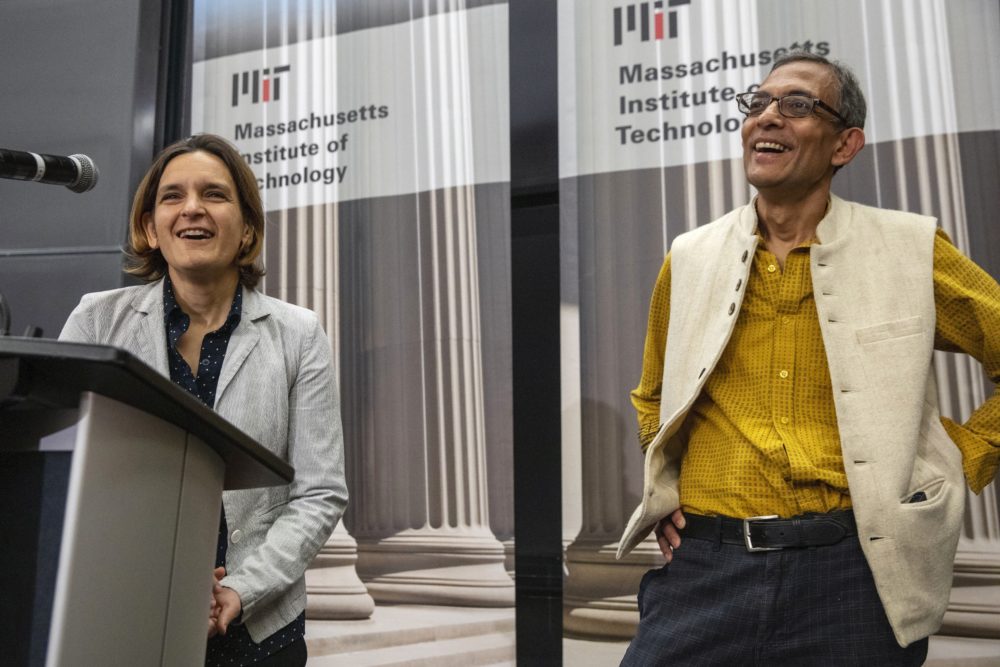Advertisement
Harvard And MIT Economists Win Nobel For Breakthrough Improving Lives Of Poor
Resume
A Harvard economist and two from MIT have won the Nobel Prize for their breakthrough in improving the lives of the poor.
Their novel approach was to apply a method used in medicine to figure out what works in economics.
Abhijit Banerjee said his "a-ha" moment came in 1990, when he started to doubt the work of economists in his field, including his own.
"Some of it, I thought, was a little bit hokey, and that made it much more attractive to look for a method that would give me a little more confidence in what we were doing," Banerjee said at a Monday press conference at MIT.
That method was randomized control trials. Banerjee and another economist, Esther Duflo, started experimenting.
Their MIT colleague Ben Olken said their work changed the field of economics in developing countries.
"The same way that you would do a randomized trial, a treatment group and a control group to evaluate whether a medical intervention works, they had the idea that you could do the same thing to understand whether social policy, and particularly policy to help alleviate poverty, whether those programs are effective or not," Olken said.
Using this method, Duflo said they learned a lot about what works in educating poor children.
"Every kid can learn, but they cannot learn if they are taught something that is so far away from what they already know that there is no way they can catch up," Duflo said. "Unfortunately, there are millions and millions and millions of children who are in school, whose parents are very excited about school, who themselves are very excited about school, and get completely discouraged within days or within weeks because they don't understand what's going on."
One bright spot in the world today, Duflo said, is that the lives of the poor are improving.
"The world today is full of somewhat depressing news, especially in the international geopolitical stage, and in the middle of this depressing news, the one hopeful thing there is is that the fate of the world's poor has really tremendously improved over the last three decades," Duflo said. "People don't tend to realize that. People in the U.S. usually are persuaded that poverty keeps increasing, for example."
But Duflo said that's not true. Part of the reason is the rapid growth of the economies of China and India. Another reason is that policies have improved — in part because they're now based on evidence of what works.
Duflo and Banerjee share the Nobel Prize with Harvard's Michael Kremer, who has worked with them.
Banerjee said their methods are now widely accepted, but that was not always the case.
"Twenty years ago, you go and tell somebody in government you're going to do a randomized control trial, and they looked at you like you had just escaped from some mental health institution," Bannerjee said. "And now they say: 'Is that expensive? Has anybody else done it? Can you give me an example of somebody powerful who has endorsed it?'"
Duflo is the second woman ever to win the economics prize and at 46, the youngest recipient ever. She says she took the phone call from Sweden early Tuesday morning and was told she was sharing the prize with Kremer and Banerjee, who is her husband.
"And I said: 'Oh, you want to talk to him?'" Duflo said, as she and many people in the room exploded with laughter.
This segment aired on October 14, 2019.
